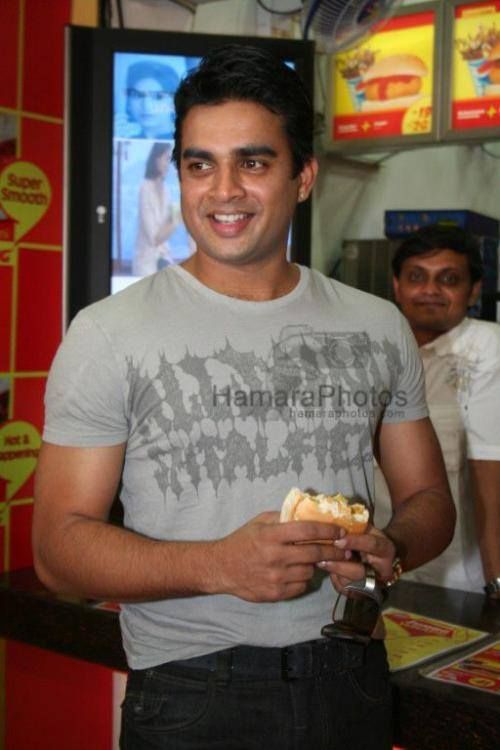In a bid to organise one of the most unorganised food businesses, Gupta with an initial corpus of only Rs 2 lakh started Jumbo King.
Dheeraj Gupta — an aspiring entrepreneur from Mumbai — completed his MBA in 1998 — two years after US fast-food chains McDonald’s and Dominos entered India.
Till then, Gupta wanted to establish manufacturing and distribution of Indian sweets in the line of chocolate companies, but it never took off.
During the bootstrapping days for the sweet business, Gupta was losing money — about Rs 50 lakh in two years — which he had borrowed from various sources.
The much-desired sweets venture did not leave any sweet memory in Gupta.
During these years, Gupta could not manage to keep his eyes off the success of McDonald’s and Dominos selling burgers and pizzas.
Gupta had to say good bye to the sweets business as he had decided to build a business in the lines of McDonald’s.

Instead of burgers and pizzas, he chose vada pav, the most popular street food in Maharashtra.
In a bid to organise one of the most unorganised food businesses, debt-ridden Gupta once again decided to borrow.
With an initial corpus of only Rs 2 lakh, Gupta started Jumbo King — a retail chain that would sell authentic vada pav across India.
Gupta leased out a 150-200 sq ft space outside Malad railways station, western suburb in Mumbai, to set up the first Jumbo King outlet that started selling 20 per cent larger vada pavs than those sold by ordinary street stalls.
On the first day — August 23, 2001 — Gupta made Rs 5,000 by selling vada pav.
While he closed the first year with a revenue of Rs 40 lakh, Gupta had to wait till 2003 to open the second store.
By 2005, Jumbo King had just five outlets in Mumbai.

Since the beginning, Gupta decided to follow the outsourcing model for sourcing and focused on consumers with care on hygiene, packaging and pricing.
Jumbo King did not require much marketing during the initial years. It was all word of mouth.
By 2006, McDonald’s opened 100 stores across India, and Gupta decided to step out of Mumbai to open his sixth outlet in Surat, Gujarat. However, supply chain was not ready, and plans failed.
Gupta had to sort this out first. In 2007, Gupta managed to find a vendor, who had been providing ready-to-fry patty to multi-national fast-food chains, agreed to feed Jumbo King as well.
This cleared the biggest hurdle for Gupta to expand his business, and paved the way for introducing different variants of vada pav.
Gupta started franchising Jumbo King across cities. Jumbo King is now present across 12 cities and it would open its 100th store by the end of May, says Gupta.

“Over the next five years, we will be focusing on the top 10 cities and will open about 50 stores each. By 2020, our target is to have 1,000 Jumbo King outlets (200-300 sq ft each). We want to build Vada Pav stalls like ATMs across the country,” he adds.
This would include cities such as Bengaluru, Hyderabad and Indore. Typically, it has four people at an outlet, and the franchising model works better, says Gupta.
Every franchisee owner is a businessman, and every store needs to be a success, which eventually helps Jumbo King to grow, he adds. “Company-owned stores is not a preferred option for us,” he points out.
As part of its quality control and customer satisfaction measure, Jumbo King conducts ‘mystery audits’ (someone goes to an outlet as a normal customer without prior notice to check everything at a store).
“We spend about Rs 1,000 per store a month. If any store fails to meet our standards, we take necessary measures,” he adds.
Jumbo King is profitable from the beginning and is growing upwards of 35 per cent annually.

Jumbo King franchisees are assured of return on their initial investments within three years, while they pay eight per cent of margins to the brand owner.
However, the next phase of growth will require external funding, says Gupta. “We may raise about Rs 50 crore after we open our 100th outlet. This would be help us to expand our footprint to 1,000 stores by 2020,” he says.
VADA PAV TYCOON
On August 23, 2001 —the first day — Dheeraj Gupta made Rs 5,000 in Mumbai
He closed the first year with a revenue of Rs 40 lakh
The second store opened in 2003
By 2005, Jumbo King had just five outlets in Mumbai
Jumbo King is now present across 12 cities and it would open its 100th store by May end











